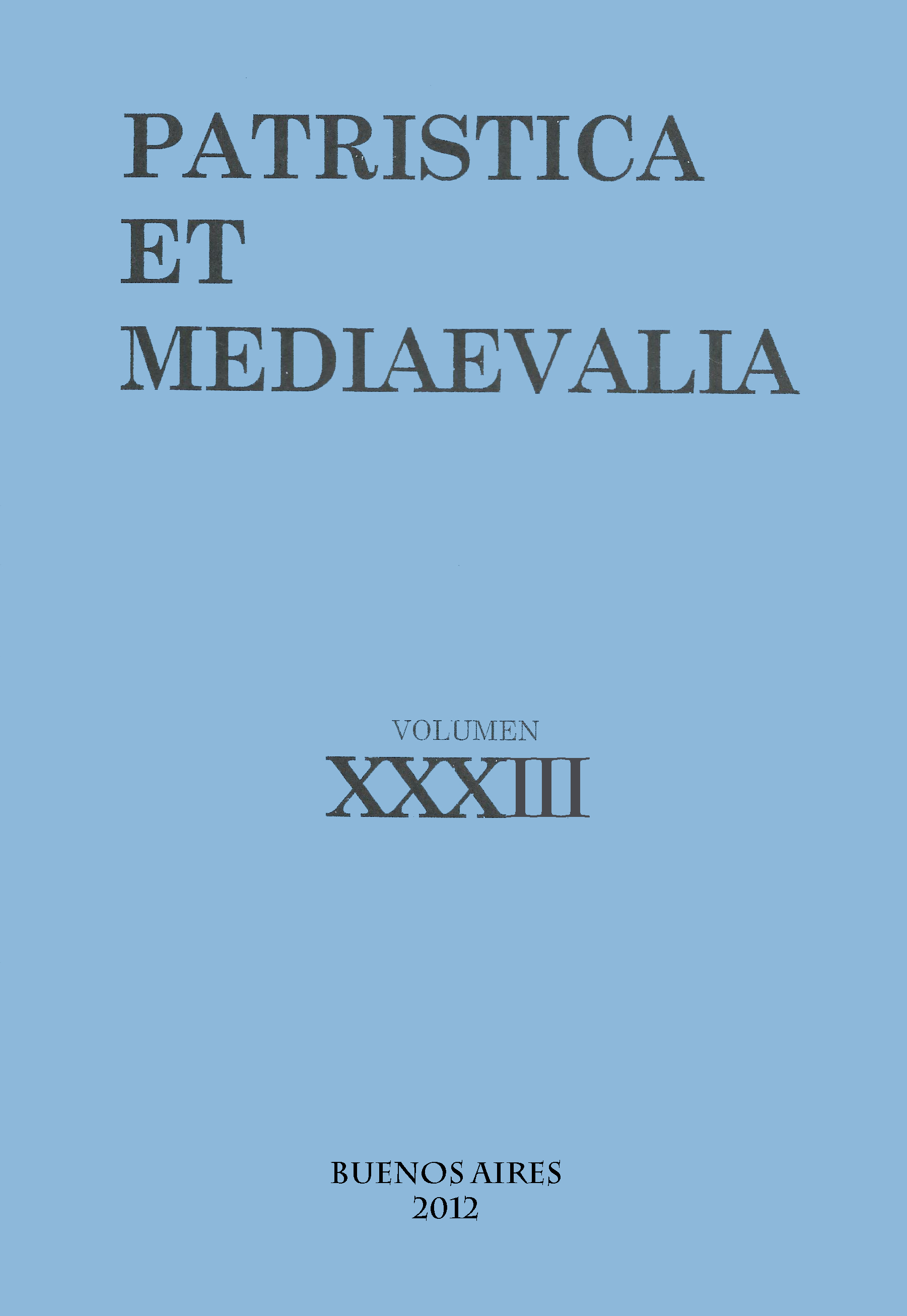Philosophy, the One that Explains Revelation. On the "Political Averroism" in the Defensor Pacis of Marsilius of Padua
Abstract
Bruno Nardi was the first in labelling Marsilius of Padua's Thought as "political averroism". However, since the Christian Middle Ages had no access to Averroes' political Philosophy, Nardi could not speak of political averroism in Marsilius' Thought regarding his political ideas but instead alluding to his philosophical conceptions and, especially, to his methodological attitudes towards the relationship Faith-Reason in the Defensor Pacis. From Nardi's assessment onwards "political averroism" became a polemical historiographical category, which led eventually to a scholar dispute on the existence or non existence of such a philosophical stream in the Mediaeval Thought. In fact, several passages of the Defensor pacis stress the distinction between Revelation and Reason, a distinction that clearly favours a rationalist attitude. Marsilian rationalism is however fluctuant. For instance, when Marsilius explains the birth of the civitas, this institution is attributed to the original sin, instead of being deduced from the concept of nature. Such a theoretical profit of the History of Salvation seems to deny (or at least to weaken) Marsilius' rationalism. This paper seeks to answer three questions: a) if Marsilius puts limits to Revelation in the Defensor pacis; b) which is the range of these limits; and c) if these limits to Revelation may be considered an averroist influence in Marsilius' Thought.Downloads
References
Butterworth, Ch. (1994). What is Polítical Averroism?. En: Niewohner, F. & Sturlese, L. (eds.). Averroismus im Mittelalter und in der Renaissance. Zürich: Spur Verlag, 239-250.
Castello Dubra, J. (1997). Nota sobre el aristotelismo y el averroísmo político de Marsilio de Padua. Veritas (Porto Alegre), 42, 671-677.
De Lagarde, G. (1970). La naissance de l’ esprit laïque au décline du Moyen Âge, III. Le Defensor Pacis. Louvain-Paris: Persee.
De Libera, A. & Hayoun, M. R. (1991). Averroès et l’averroïsme. Paris: PUF.
Federici Vescovini, G. (1996). Aristotelismo e averroismo: dalle arti alla teología. L'aristotelismo 'secolare' in Italia En D'Onofrio, G. (ed.}. Storia della teología nel medioevo, vol. III. Casale Monferrato: Piemme, 577-604.
Geoffroy, M. (1999). L’almohadisme théologique d’ Averroès (Ibn Rusd). Archives d’histoire doctrinale et littéraire du Moyen Âge, 66, 9-47.
Gilson, E. (1947). La philosophie au Moyen Âge. Paris: Payot.
Ghisalberti, A. (1996). Il superamento del concordismo teologico e la crisi della diarchia. En D’Onofrio, G. Storia della teologia nel medioevo (III: La teologia delle scuole). Casale Monferrrato: Piemme, 357 y ss.
Grignaschi, M. (1983). Indagíne sui passi del 'commento' suscettíbili dei avere promosso la formazione di un averroismo político. En: Dolcini, C. (ed.). Il pensiero politico del Basso Medioevo. Bologna: Patron Editore, 273-312.
Hübener, W. (1994). Unvorgreifliche Überlegungen zum möglichen Sinn des Topos 'politischer Averroismus’. En: Niewohner, F. & Sturlese, L. (eds.). Averroismus im Mittelalter und in der Renaissance. Zürich: Spur Verlag, 222-238.
Imbach, R. (1989). L’averroïsme latin du XIIIe siècle. En: Imbach, R. & Maierù, A. (ed). Gli studi di Filosofia médiévale fra otto e novecento. Contributo a un bilancio storiografico. (Atti del convegno internazionale. Roma, 21-23 settembre). Roma: Edizioni di Storia e Letteratura, 191-218.
Miethke, J. (2008). "Averroismus in der politischen Theorie des 14. Jahrhunderts? Marsilius von Padua und Wilhelm von Ockham. Actas del congreso anual de la SIEPM (Ginebra, 2008).
Nardi, B. (1921). Il concetto dell' Imperio nello svolgimento del pensiero dantesco. Giornale storico della letteratura italiana, 78, 1-52. (reimpreso Nardi, B. (1967). Saggi di filosofia dantesca. Firenze: La nuova Italia, 215-275).
PIaia, G. (1985). ‘Averrroisme politique’: anatomie d’un mythe historiographie. En: Zimmermann, A. (ed). Orientalische Kultur und europäisches Mittelalter (Miscellanea Mediaevalia 17). Berlin/New York: Walter de Gruyter, 328-344 [versión italiana: '"Averroísmo político': anatomía di un mito storiografico", en: Piaia, G. (1999). Marsilio e dintorni, Contributi alla storia delle idee [Miscellanea erudita 61], Padova: Editrice Antenore, 79-103].
Quillet, J. (1976). Breves remarques sur les Quaestiones super Metaphysicae libros I-VI (Codex Fesulano 161, fol. 1ra-41va) et leurs relations avec l’aristotélisme hétérodoxe. En Zimmermann, A. (ed). Die Auseinandersetzungen an der Pariser Universität im XIII. Jh. (Miscellanea Medievalia, 10). Berlin/New York: Walter de Gruyter, 361-385.
Quillet, J. (1979). L’aristotélisme de Marsile de Padoue et ses rapports avec l’averroïsme. Medioevo 5, 81-142.
Troilo, E. (1942). L’ averroismo di Marsilio da Padova. En Checcini, A. & Bobbio, B. Studi raccolti nel VI centenario della morte di Marsilio da Padova. Padova: Cedámosles, 50-77.
1. The authors who publish in this magazine accept the following conditions:
-
They retain the copyright and grant to the magazine the right of the first publication, with the work registered under the Attribution-ShareAlike 4.0 International License that allows third parties to use what is published as long as they mention the authorship of the work and the first publication in this magazine.
-
They can make other independent and additional contractual agreements for the non-exclusive distribution of the version of the article published in this magazine (eg. include it in an institutional repository or publish it in a book) provided that they clearly indicate that the work was first published in this journal.
-
They are allowed and recommended to publish their work on the Internet (for example on institutional or personal pages).
2. AutoArchive Conditions. Authors are allowed and encouraged to distribute post-print electronic versions of their manuscripts because it promotes their circulation, a possible increase of quotation and a major reach among the Academic community. Color RoMEO: blue.













